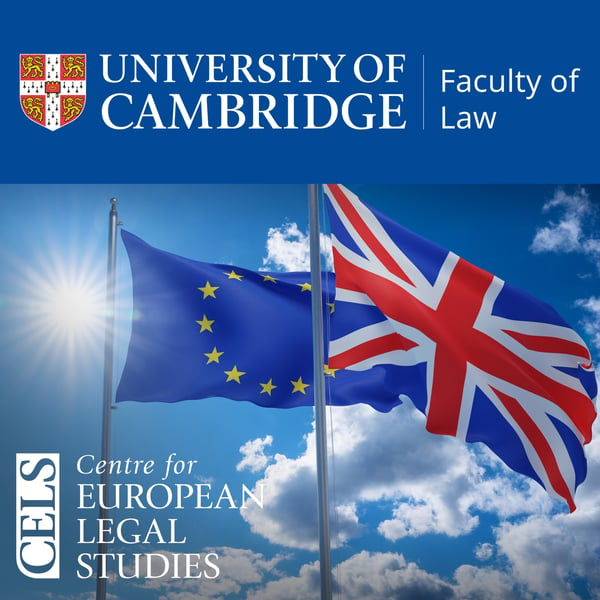'Session 4: Competition Law' - Oke Odudu: CELS Brexit Symposium
Cambridge Centre for European Legal Studies (CELS) Podcast
Faculty of Law, University of Cambridge
0 • 0 Ratings
🗓️ 14 March 2019
⏱️ 18 minutes
🧾️ Download transcript
Summary
Transcript
Click on a timestamp to play from that location
| 0:00.0 | Thank you very much. |
| 0:06.1 | I thought I would pick up on some of the aspects of Brexit |
| 0:13.3 | surrounding the state aid regime. |
| 0:17.4 | And what I thought I'd do was start out with government policy, which is not the ordinary place to start, but it's actually turned out to be the most important place to start. |
| 0:31.3 | And so it's just government policy, the government view, that unregulated subsidies are harmful. They are not desirable within the UK. |
| 0:42.3 | So that is government policy. And then, certainly the case, you can see here, the Secretary of State for Exist in the European Union at the time, that was David Davis, |
| 0:59.2 | he gave a Vienna speech and just says, the UK is a vocal proponent of restricting unfair |
| 1:06.0 | subsidies to ensure competitive markets. It's good for taxpayers, good for the consumers. |
| 1:11.6 | These are principles true across the globe. |
| 1:14.6 | And they're going to be, they're going to continue to be true in the UK's relationship with the UK. |
| 1:20.6 | So these are principles true across the globe. |
| 1:23.6 | So since we're not leaving the planet, these are the principles that the UK adopts. |
| 1:29.9 | And so you'd expect them to persist. |
| 1:33.3 | And it's true of the Prime Minister in the Mansion House speech, |
| 1:37.6 | that the UK has much to gain from maintaining proper discipline |
| 1:41.5 | in the use of subsidies and anti-competitive practices. |
| 1:45.2 | So that is a policy that the UK has and is able to implement that policy at the moment |
| 1:54.2 | through the EU regime. |
| 1:57.4 | So you're able to promote the UK's policy by applying the EU regime, which rests on three pillars. |
| 2:05.3 | So the state aid regime contains a general prohibition on the granting of subsidies. |
| 2:11.6 | It then provides a framework of exceptions, and it is supervised by the European Commission. But it is clear that that is |
| 2:20.9 | the UK's government policy, and the mechanism that you are able to implement that policy is through |
... |
Please login to see the full transcript.
Disclaimer: The podcast and artwork embedded on this page are from Faculty of Law, University of Cambridge, and are the property of its owner and not affiliated with or endorsed by Tapesearch.
Generated transcripts are the property of Faculty of Law, University of Cambridge and are distributed freely under the Fair Use doctrine. Transcripts generated by Tapesearch are not guaranteed to be accurate.
Copyright © Tapesearch 2025.

